Kate Brayden writes about her experiences with chronic pain, and how not having the energy to criticise her body has been an unexpected - albeit complicated - upside to an otherwise incredibly difficult condition.
"You were heavier last time I saw you," a family member who won’t be named recently said to me. He comes from a generation that makes these declarations as though they’re gifting the highest of compliments; an age bracket who still believes the myth that equates lower weight with fit health.
A few years ago, an unsolicited comment such as this one might have bothered me a lot more, but this one was easy to shrug off. When I called the relative out, my parents were mortified - as older Irish people are when their daughter "makes a fuss" about something they deem silly.
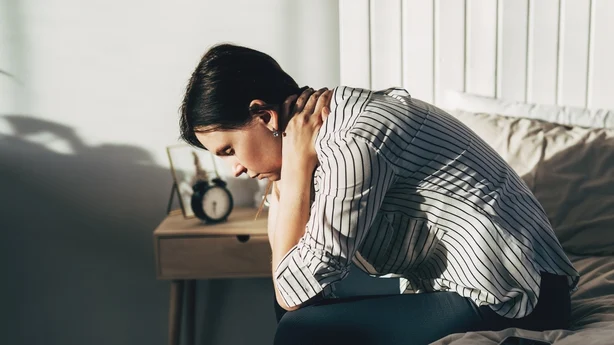
The last time this person had seen me, it was at a family wedding about a year and a half ago, and I was roughly the exact same weight as I am now. The only difference is my medication dose for treating chronic pain, which creates bloating, increases appetite and can give your face a (sexy!) swollen appearance.
I can only speak for my own experiences, but chronic pain and illness has already robbed eight years of my 20s. Potentially the only silver lining of dealing with such a hand of cards at a young age is that I am almost stubbornly immune from giving airtime to negative thoughts about my body image.
Many of us struggling with the burden of chronic pain or illness simply don't have the energy to care about how our size or appearance is perceived by others, and don't have the mental bandwidth to criticise our own bodies anymore. My body is simply trying its best to get me through each day of symptoms.
All I want my body to do is work. To breathe properly, to be able to exercise without needing to lie in bed for days afterwards, to react to certain foods the way other people’s bodies do. Given how much time I consume being enraged that my body isn’t acting how I want it to, there simply isn’t room to obsess over how it appears to other people.
Of course, I didn't always think like this. I went to an all girls’ secondary school rife with horrific levels of psychoanalysis when it came to aesthetics. At the time, I was extremely fit, having played two sports, and had a fast metabolism.
Chronic pain and illness was yet to change my life in any way, and I lived as though my body was indestructible. I cared about my appearance, but I was privileged enough that weight never played a major role in my existence.
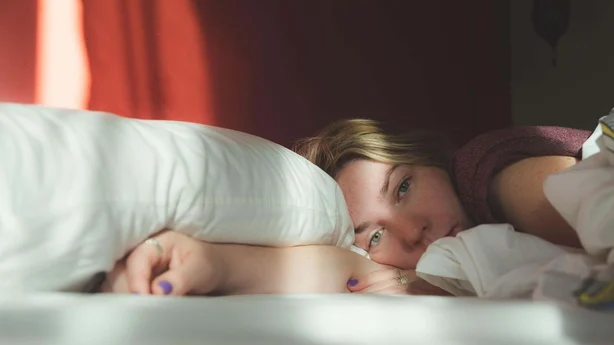
Going on multiple different forms of medication definitely changed my size later on, but so did my lifestyle. Never feeling able to run, and therefore play sports, left my mood low and lethargic. It also contributed to the cycle inside my head that told me I was just lazy.
Auto-immune diseases and chronic pain naturally can cause bloating, weight gain and endless fatigue that does not compute with a "regular" 28-year-old’s Instagram page full of 'fitspo’ and chic athleisure.
People of a certain weight are often blamed for their chronic pain and illness (a medical bias that’s statistically far worse for women, specifically those of colour or specific marginalised groups like those on a lower income bracket). The likes of Polycystic Ovary Syndrome, endometriosis, fibromyalgia and fibroids are all diseases which affect women that are also associated with weight gain - not to mention mental health conditions like depression.
As a cisgender white woman of a certain "acceptable" size, it’s only luck that has prevented my illnesses from being pinned solely to weight and therefore lifestyle.
Of course, that’s not to say my pain was never questioned or denied. As a 21-year-old college student, it took over a year of endless appointments with consultants and ER visits before someone even prescribed me proper pain relief - with many accusing me of seeking attention. But doctors have never directed archaic weight misinformation at me.
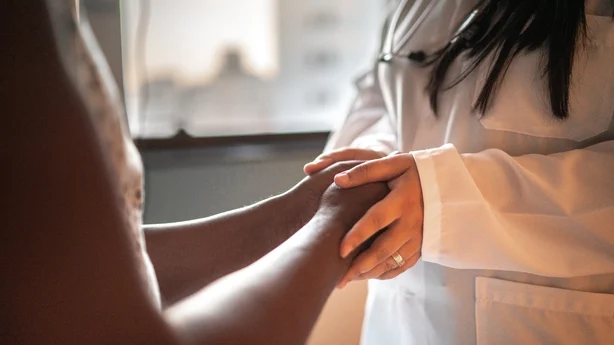
Eight years into a journey where I’m still trying to find out what works for me in terms of feeling well day-to-day, my relationship with exercise is a complex one. For the first four years of my pain conditions, it was virtually impossible. I had such a low handle on my pain management and my doctors were so clueless as to what was actually wrong, that all I wanted to do was stay in bed.
I gave up sugar, alcohol, gluten, and dairy to try an anti-inflammatory diet, I was taking all forms of vitamins imaginable, physiotherapy, slow walks, acupuncture, and black box label medications to try to keep everything ticking along, but it never felt like I was physically well.
After a couple of surgeries reduced my pain enough to work and finish my degree, I was diagnosed with fibromyalgia - likely as a result of my brain having to deal with such absurdly high pain signals without control for years on end, according to the two doctors in New York and Ireland I've seen about my condition.
Even when my chronic pain isn’t flaring as badly as usual, there is never a day where I don’t feel fatigue, brain fog or joint pain. Where in that equation would there be time for me to analyse how my body looks to others? Why would I care if my stomach looks bloated in leggings?
Speaking to Thalia Gilligan, a Bristol-based psychotherapist and pain counsellor, it’s clear that compassion for one’s self and less judgement from others are both imperative.
"With chronic pain, lifestyle choices are often very limited due medication and energy levels, but also kickbacks against doing anything physically," Gilligan tells me. "Emotionally, it can be really hard to manage. The person may have to deal with a flare up of symptoms that then takes days or weeks to get on top of again. It becomes really hard to introduce any new routine or exercise.
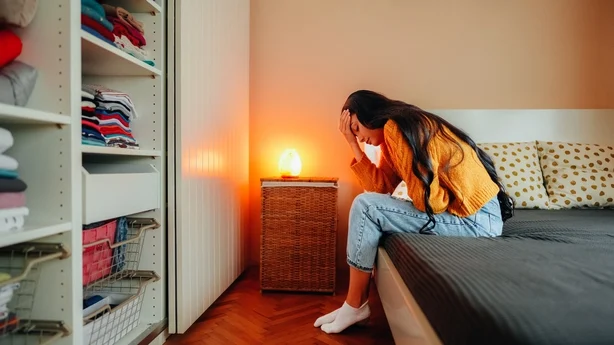
"There is a lot of misunderstanding when it comes to chronic conditions. Sometimes, there are days or times where there is less pain. My clients often describe how saying 'I’m in pain' is when it’s at a level they can't manage, not that pain has just onset. The symptoms are there all the time, they just fluctuate in the intensity."
Gilligan also notes that "many chronic pain conditions are rooted in trauma in the person’s history".
"We have to address the cause of what is going on inside of the body, rather than just seeing symptoms. This makes it extremely difficult to address exercising or body image, as our body is stuck in survival mode. It’s called nervous system dysregulation. When we are in survival mode, we have a lot more cortisol and inflammatory markers in our systems. In short, addressing body image or weight gain is not as simple as ‘exercise more’."
Just over a year ago, I started bouldering - a weird word for indoor wall climbing - after my physiotherapist tentatively gave out to me for not committing to strength building. Fibromyalgia is the worst disorder to have if you’re hard on yourself, because it takes twice as long as able-bodied people to build up strength and is also nearly impossible to maintain progress.
For the first three months, I dreaded when my friends would pick me up to go to the gym. I used to love climbing as a kid, so much so that my mum had a neighbourhood-watch-style mafia group in our estate who would text her when they saw me up a tree as I was "banned" from constantly going up way too high.
But the endless runs that ended in tears and days in bed had knocked my confidence and ability to think of myself as fit or active. I resented people who could approach exercise in a freeing way, where their barriers weren’t health-related.
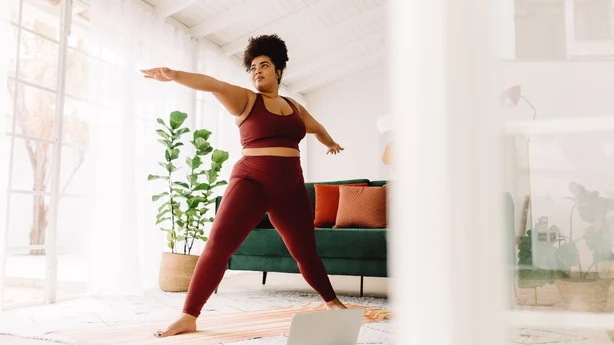
Of course, after six months of bouldering, I had improved beyond recognition, and my mental health was boosted, too. The whole "endorphins help your mood" notion is, unfortunately, very true! A devastating acknowledgement to a creative who despises intimidating gyms.
For chronically ill people, exercise can be a privilege. We have to be forgiving to ourselves when we ache all over before even doing anything physical. If I skip climbing, I try not to beat myself up. If I go and can’t climb a wall as well as usual because of a flare, I don’t mutter that I’m useless anymore.
I may not have control over what my body is capable of doing or how it’s feeling, but I have control over how I speak to it, and I won’t hear a bad word against her bloating, stretchmarks, dark eye bags, or weight where others wouldn’t feel is desirable.
She’s trying her best, and puts up with a lot of hassle (like cells attacking each other, pain signals accidentally firing off, and more). The least I can do is be nice.
Disclaimer: The copyright of this article belongs to the original author. Reposting this article is solely for the purpose of information dissemination and does not constitute any investment advice. If there is any infringement, please contact us immediately. We will make corrections or deletions as necessary. Thank you.






